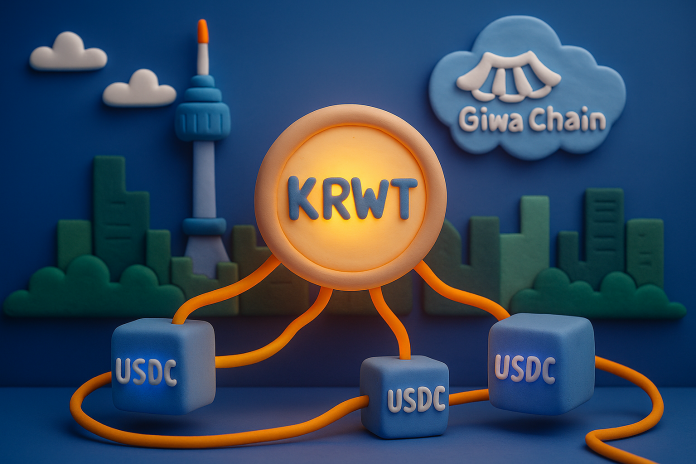
Dunamu has begun testing a Korean won–based stablecoin on its proprietary blockchain “Giwa Chain,” marking the first such experiment in Korea ahead of full regulatory approval. The move is drawing strong attention from both the financial sector and the broader digital asset industry.
The pilot stablecoin, named KRWT, is issued by collateralizing the U.S. dollar–based stablecoin USDC and applying the won exchange rate. Users can convert KRWT back to USDC, and the system is currently being tested among a limited group of verified users. The technological foundation for the project lies in Giwa Chain’s public testnet, developed by Dunamu.
Industry observers view this as Dunamu’s effort to secure operational and technical data in preparation for future legalization of won-denominated stablecoins. Once regulations are in place, Dunamu could expand its business from exchange operations to real-economy use cases such as payments and remittances. Strategic collaboration or potential integration with Naver Financial’s payment network is also being discussed within the market.
At present, Korea has no clear legal framework governing the issuance of won-backed stablecoins. Financial authorities, including the Financial Services Commission (FSC) and the Bank of Korea, are reportedly reviewing potential standards for capital requirements, reserve management, and redemption procedures. Dunamu’s early testing is thus interpreted as a move to gain a first-mover advantage before regulatory doors fully open.
According to Mirae Asset Securities, Korea’s stablecoin market could reach ₩5 trillion (approx. $3.6 billion) by 2030. If Dunamu secures both technological infrastructure and liquidity in advance, it could capture more than half of the market during the initial commercialization phase.
An industry insider noted, “Stablecoins are directly tied to national financial systems, so credibility and regulatory clarity are essential. Dunamu’s pilot project could become the critical turning point that determines who leads the market once full legalization arrives.”



![[November]Uptober No More](https://coinhubkorea.com/wp-content/uploads/2025/10/Whisk_d78880efb01a730907f4be201effefe1dr-1-100x70.jpeg)


